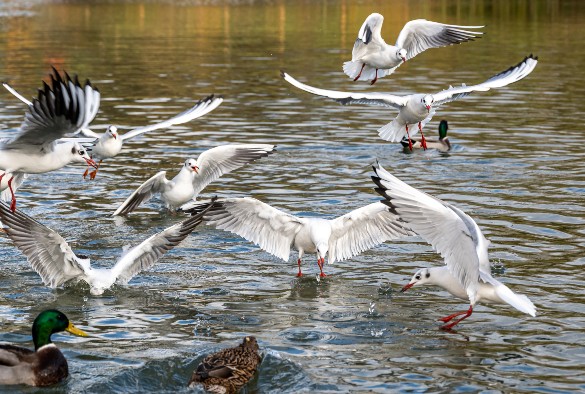
Although avian flu currently presents a very low risk to public health, given the recent increase in cases it is useful to be aware of some simple safety tips related to this disease. You can find out more below:
About avian influenza
The UK Health Security Agency (UKHSA) has said that avian influenza is primarily a disease of birds and although it can affect humans and other mammals, the risk to the general public’s health is very low. The regional UKHSA Health Protection Teams are working closely with DEFRA to monitor the situation and will be providing health advice to people at any infected premises as a precaution.
Avian influenza is in no way connected to the COVID-19 pandemic which is caused by the SARS-CoV-2 virus which is not carried in poultry.
Wild birds
If you find dead wild waterfowl (swans, geese or ducks) or other dead wild birds, such as gulls or birds of prey, you should report them to the Defra helpline (03459 33 55 77). Do not touch or pick up any dead or visibly sick birds that you find. For further information see DEFRA’s advice to the public.
Food safety
The Food Standards Agency has said that bird flu poses a very low food safety risk for UK consumers, and it does not affect the consumption of poultry or eggs. Properly cooked poultry and poultry products, including eggs, are safe to eat.
Travel guidance
The UKHSA has issued advice for those travelling outside the UK at the current time.
You should try to avoid:
- Contact with dead or alive birds
- Visiting markets where live birds are sold
If you experience any flu like symptoms within 10 days of returning from travel, you should call your GP or NHS 111 and report your recent travel activity. These symptoms are similar to coronavirus (COVID-19) infection, so informing your GP or NHS 111 about your recent travel is important.
UKHSA has arrangements in place to deal with emerging diseases. This includes the detection and investigation of suspected cases, and the management of confirmed cases and their contacts.
Cases in England
For details of the current avian influenza cases in England and the measures that apply in the disease control zones around these cases, see the avian influenza: cases and disease control zones in England guidance.